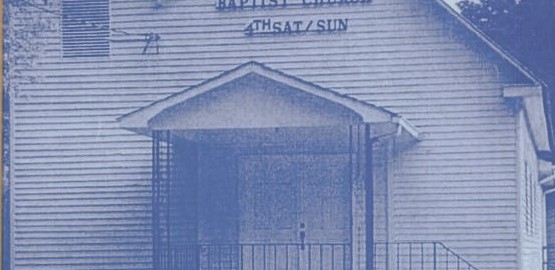The Primitive Baptist Universalists are a small subdenomination of the so-called Primitive Baptists. Primitive Baptists adhere to a strictly monergistic theology much like the English Particular Baptists of the 17th and 18th centuries. But where Primitive Baptists usually believe in a limited atonement, i.e. the belief that Christ only died for a few, Primitive Baptist Universalists affirm the biblical belief, that Christ died for all (Rom. 5:18-19; 1 John 2:2). PBUs claim that this is original Baptist doctrine (at least the early English Particular Baptist Samuel Richardson seems to have held such views).
Not much have been written about the Primitive Baptist Universalists, however, except for Howard Dorgan’s In the Hands of a Happy God: The “No-Hellers” of Central Appalachia.
Howard Dorgan lists the following ten central tenets of the Primitive Baptist Universalists:
1. Because of Adamic sin, all humankind is inherently sinful; therefore, sinfulness is a standard characteristic of “natural man.”
2. Satan is nothing more than natural man, warring with “spiritual man,” and thus will have no existence beyond the temporal world.
3. In addition to the creation of “sinfulness” (the given nature of natural man), this Adamic transgression also instituted “punishment” (the “general judgment” hell of the temporal world, the torment of absence from God’s blessing that sin generates) and “death” (humankind’s ultimate punishment for Adamic sin).
4. Humankind cannot possibly extricate itself from this state of natural sin and so requires Christ’s atonement.
5. Christ’s atonement was for all humankind and at Resurrection will irrevocably come to pass for all humankind; just as, irrevocably, Adam’s transgression earlier had condemned all to the sinful state of natural man.
6. However, there is an “elect,” Christ’s church (the established Primitive Baptist Universalists and perhaps others not known to the movement), which has been “separated from the rest of God’s people here in time,” chosen to be a witness for Christ and an earthly preserver of his righteousness, and “kept by the power of God through faith,” never finally to fall away.
7. So these elected individuals can sin, and in doing so, they suffer the hell on earth that a separation from God’s blessing institutes. Probably they feel that hell more intensely than the nonelect, simply because the elect have a sharply contrasting experience for comparison.
8. At Resurrection, however, all temporal existence will terminate, for both the dead and the still living, bringing an end to all “sin” (that given nature of humankind), to the “general judgment” (the sentence imposed upon humans for Adamic sin), to “punishment” (the hell on earth, the absence from God’s blessing, that is instituted by sin), and to “death” (the ultimate punishment for Adamic sin).
9. At Resurrection, all humankind will go to a totally egalitarian heaven, the culmination of Christ’s universal atonement.
10. Since punishment is a factor solely of the temporal world, there will be no hell after Resurrection.
